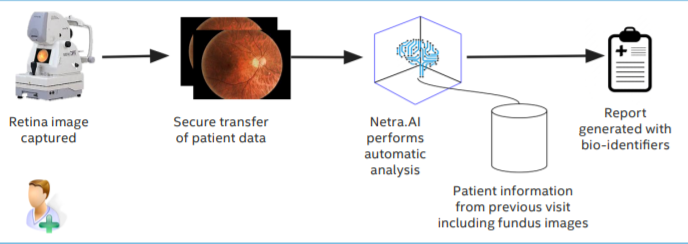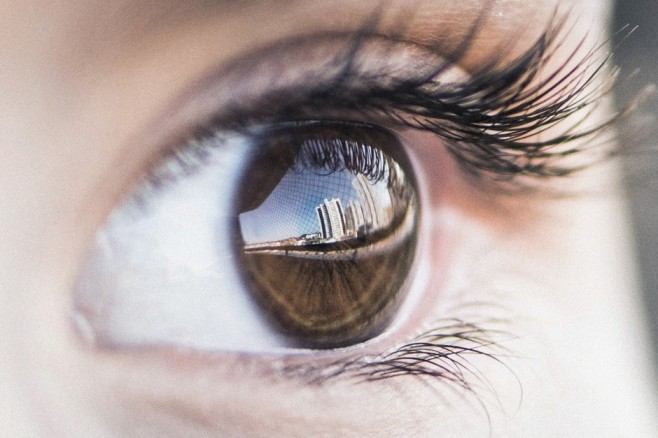AI and machine learning have pushed every limit in making things simpler for humans, and now these two together will be reading the human retina to identify retinal conditions to reduce the risk of partial or complete blindness in diabetic patients. Sankara Eye Foundation (Indian branch) and Leben Care (Singapore) have developed a new AI and machine learning-based software-as-a-service platform that would be assessing the retinal risk and help diagnose any issues. The platform is making use of AI and deep learning and is powered by Intel. The platform is called Netra.AI and is specifically built for India.
What is Netra.AI?
Netra.AI is a cloud-based platform and is designed to detect diabetic retinopathy (DR) in very little time, that too, with complete accuracy. DR is a retinal condition that can lead to blindness. And India, which is the largest diabetic population in the world, needed such technology to help reduce the risk of vision loss in diabetic patients. This can also be a great step in reducing the burden on the vitreoretinal surgeons as Netea.AI will help in identifying such conditions in time so that a favorable step is taken to avoid the risk.
“With Netra.AI, Sankara Eye Foundation and Leben Care have leveraged the power of Intel Xeon Scalable processors and built-in Intel Deep Learning (DL) Boost to accurately detect DR and enable timely treatment to effectively combat avoidable vision impairment and blindness in diabetic patients,” the Vice President and the Managing Director of Sales, Marketing and Communications Group at Intel India, Prakash Mallya, said in a statement.
How Netra.AI Works
The Netra.AI platform includes a cloud-based web portal, which is responsible for providing immediate DR grading results. Portable and technician-operated camera devices are used to take pictures of the human retina, which then are analyzed by the Intel-powered Netra.AI. With the fundus images taken, Netra.AI detects any type of damage based on pixel density. On the basis of this analysis, the system generates quick results for that retina with bio identifiers. These results also include the various stages of diabetic retinopathy (DR) and the result is out only in two minutes.

Netra.AI works on some powerful algorithms based on a four-step deep convolutional neural network (a class of deep neural networks). The founders of Netra.AI have collaborated with retina experts around the world to make the system work with absolute accuracy.
Benefits for India
India has the largest diabetic population, and in the rural area, people with diabetes suffer the most, as there are no retinal specialists available, and the asymptomatic patients only find out their condition at the later stages. According to the reports, the estimated number of diabetic patients will reach 98 million by 2030, causing loss of vision and blindness in adults. The country needed a solution such as Netra.AI, as detecting retinal conditions in the early stages can help in reducing the number of diabetic patients and the risk of further damage in the existing patients.
“Technology and AI are democratizing healthcare access, especially in screening for ailments. Our team at Sankara Eye Foundation has focused on our vision to eliminate needless blindness from India. The current solution, Netra.AI, where we had a key role in the design and development with Leben Care uses robust AI-enabled platforms from Intel. It is an example of how like-minded collaborators can create meaningful and impactful solutions for various challenges that face humanity,” said Dr. Kaushik Murali, the president of Medical Administration, Quality & Education at Sankara Eye Foundation in India.
Source: newsroom.intel.com
Other than DR
Other than DR, Netra.AI will also be able to detect other retinal conditions like glaucoma, macular degeneration, and other retinal pathologies. For now, according to the company, Netra.AI has already screened 3,093 patients, among which it has found that 25 percent of the total screened patients were already at risk.

Yashica is a Software Engineer turned Content Writer, who loves to write on social causes and expertise in writing technical stuff. She loves to watch movies and explore new places. She believes that you need to live once before you die. So experimenting with her life and career choices, she is trying to live her life to the fullest.
